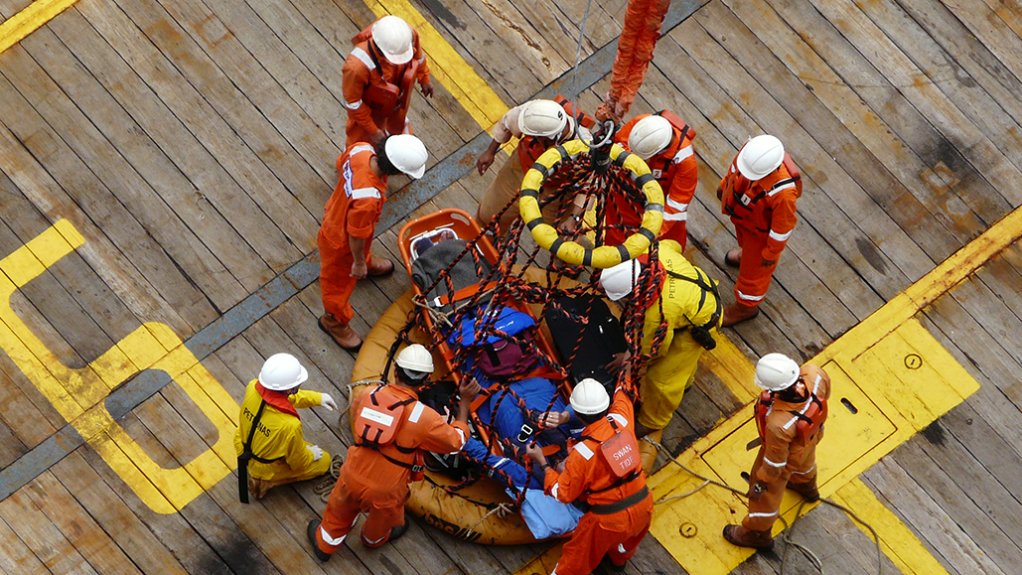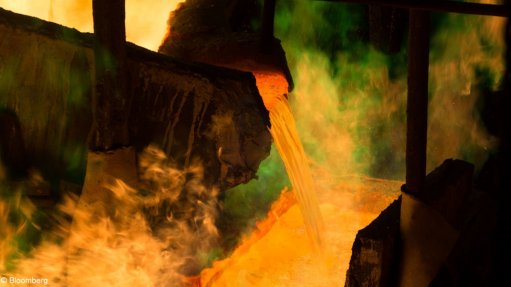Health, safety measures boost productivity


RISKY MEASURES Onshore and offshore environments presents unique health challenges
In the oil and gas sector, prioritising the health and safety of workers is crucial, particularly considering that operating in onshore and offshore environments presents unique health and safety challenges that need to be addressed effectively.
Experienced workers being affected by various health challenges can lead to a disruption in production, which will, ultimately, hinder the industry’s overall performance, explains health and security service firm International SOS clinical governance global health adviser Dr Chris van Straten.
Therefore, adequate health solutions need to be adopted to prevent and tackle health challenges.
Owing to its inherently demanding and often hazardous nature, the oil and gas sector faces a significant challenge in preventing and managing employee health issues and staff shortages, he adds.
“Prolonged exposure to harsh working conditions, such as extreme temperatures, toxic chemicals and physically demanding tasks, can lead to higher incidents of health problems,” Van Straten says.
These health issues range from respiratory conditions to injuries and can result in increased absenteeism and reduced productivity.
Additionally, close living quarters on offshore platforms can facilitate the spread of infectious diseases; therefore, health and safety measures are crucial to prevent outbreaks in such confined spaces.
Offshore work also demands highly physical tasks, which increases the risk of accidents and injuries such as slips, trips, falls and equipment-related incidents.
Common injuries can include bone fractures and muscle strains, while more severe incidents can result in burns or crush injuries.
Further, fatigue, owing to long and irregular working hours, can also impair decision- making and increase the likelihood of accidents.
Van Straten says offshore installations operate in diverse geographic locations with unique challenges and, consequently, unique health risks; therefore, a “one-size-fits-all” approach to health and safety cannot be applied for such operations.
Prevention
Van Straten emphasises the importance of conducting appropriate health risk assessments prior to operations. Pre-employment medical assessments of oil and gas personnel are essential to ensure that workers are fit and healthy.
This will ensure that the risks of working on an offshore platform are fully understood and can be appropriately mitigated through appropriate planning of the medical team and the medical structure required.
He adds that the ongoing monitoring of health risks, as well as the promotion of physical and mental wellbeing of staff, are significant beneficial factors to be taken into account to prevent health and safety incidents.
In this regard, medical staffing, workplace prevention programmes and digital or remote support are key elements contributing to a comprehensive duty-of-care framework, says Van Straten.
Creating and deploying wellness programmes for offshore installations, including access to continuous medical care and mental health support, can also contribute to a more resilient workforce.
Van Straten adds that recent advances in electronic medical record systems, telemedicine and data analytics can assist in these efforts.
“Effective health and wellness programmes have not only demonstrated a healthier and happier workforce but also a more productive and effective workforce, with a demonstrated return on investment,” he enthuses.
Mental Health Awareness
Having to spend extended periods away from home and families can lead to mental health issues such as anxiety, depression and stress.
In this regard, Van Straten urges operations in the oil and gas sector to recognise mental health resilience as part of the broader health consideration.
According to the International SOS Foundation and Affinity Health at Work study, 40% of oil and gas worker respondents experienced suicidal thoughts on duty, some time or all the time, while 29% met the benchmark for clinical depression while on duty.
Further, 35% of respondents exercised less, 38% experienced a decrease in quality of sleep and 28% were less inclined to follow a nutritious diet while on duty.
“The knock-on effect of poor physical health contributes to not only potential health and safety risks and increased lost-time injuries but also financial and legal implications,” says Van Straten.
While duty-of-care is a fundamental pillar across numerous sectors and industries, the landscape has evolved quickly, and companies need to adapt to new regulations, new threats, new requirements, and work expectations, he concludes.
Comments
Press Office
Announcements
What's On
Subscribe to improve your user experience...
Option 1 (equivalent of R125 a month):
Receive a weekly copy of Creamer Media's Engineering News & Mining Weekly magazine
(print copy for those in South Africa and e-magazine for those outside of South Africa)
Receive daily email newsletters
Access to full search results
Access archive of magazine back copies
Access to Projects in Progress
Access to ONE Research Report of your choice in PDF format
Option 2 (equivalent of R375 a month):
All benefits from Option 1
PLUS
Access to Creamer Media's Research Channel Africa for ALL Research Reports, in PDF format, on various industrial and mining sectors
including Electricity; Water; Energy Transition; Hydrogen; Roads, Rail and Ports; Coal; Gold; Platinum; Battery Metals; etc.
Already a subscriber?
Forgotten your password?
Receive weekly copy of Creamer Media's Engineering News & Mining Weekly magazine (print copy for those in South Africa and e-magazine for those outside of South Africa)
➕
Recieve daily email newsletters
➕
Access to full search results
➕
Access archive of magazine back copies
➕
Access to Projects in Progress
➕
Access to ONE Research Report of your choice in PDF format
RESEARCH CHANNEL AFRICA
R4500 (equivalent of R375 a month)
SUBSCRIBEAll benefits from Option 1
➕
Access to Creamer Media's Research Channel Africa for ALL Research Reports on various industrial and mining sectors, in PDF format, including on:
Electricity
➕
Water
➕
Energy Transition
➕
Hydrogen
➕
Roads, Rail and Ports
➕
Coal
➕
Gold
➕
Platinum
➕
Battery Metals
➕
etc.
Receive all benefits from Option 1 or Option 2 delivered to numerous people at your company
➕
Multiple User names and Passwords for simultaneous log-ins
➕
Intranet integration access to all in your organisation


















